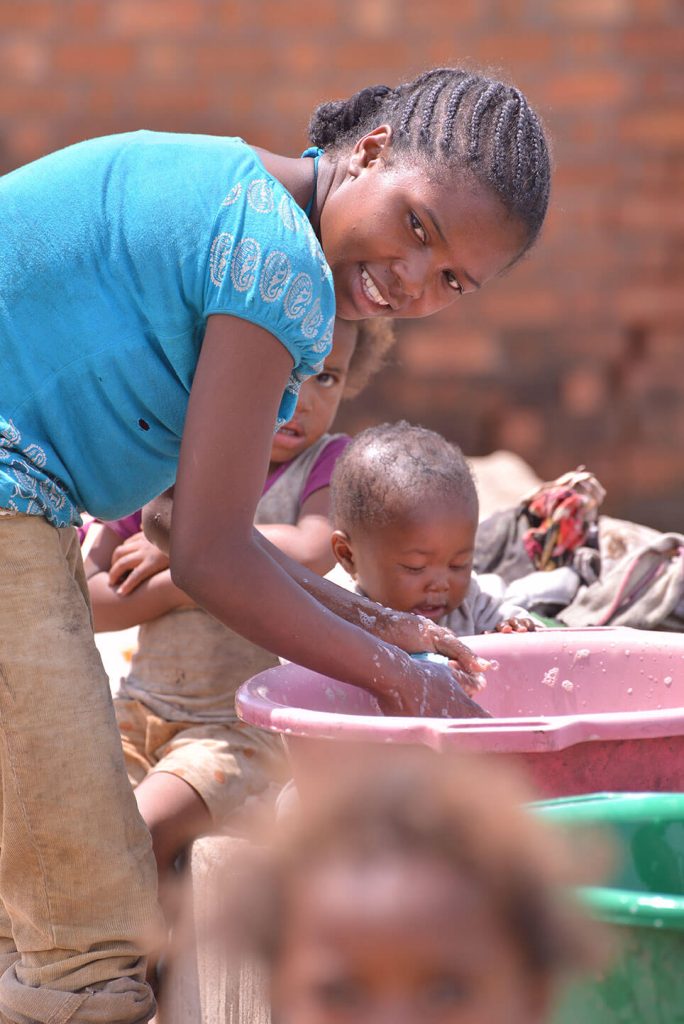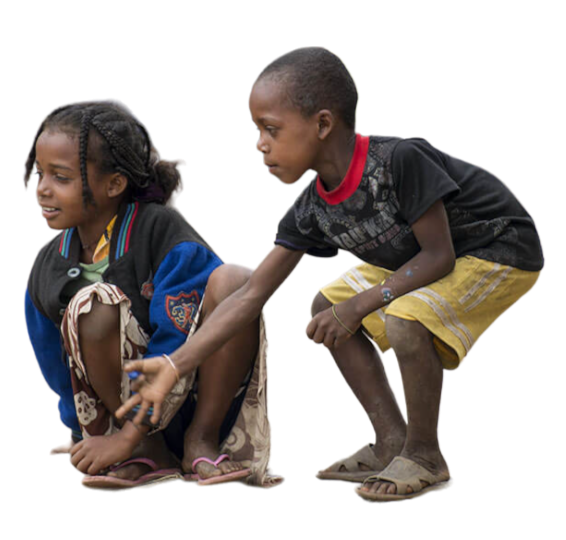What is institutional care and why have all UN member states recently signed a declaration to stop its practice ?
According to agreed international definitions, an institution is any residential setting where children and young people are subjected to an ‘institutional culture’. By nature of their size and management, institutions have characteristics of depersonalisation, rigidity of routine, lack of individual support or personal treatment. Due to the staff/worker set up of large institutions, children are deprived of their innate psychological need to make a solid attachment to one consistent caregiver. Children in institutions are often excluded from the wider community, with limited contact with birth families. Many children in institutions have very little knowledge of their own cultural heritage and traditions.

Children thrive in families.
A family structure is smaller and provides care tailored to a child’s individual needs. It provides a child with a chance to make a healthy attachment with their care giver which research shows is very necessary for healthy psychological development. Families live in community, and so instead of being ostracized and cut off from community in a centre, children can feel part of Malagasy culture and grow up with a strong sense of belonging.
80% of children in institutions are not orphans. They are placed in these facilities as a result of factors such as poverty, disability, marginalisation, migration, trafficking, lack of access to health, education or family support services.
If something happened to you that meant you were not able to look after your child, who do you hope could care for them? A relative? A friend? A trained family ready to welcome them into their home?
According to the UN Guidelines on Alternative Care, no child should be separated from birth family due to poverty alone. Many countries around the world have changed their style of childcare from institutions to family care. In countries like Rwanda and Uganda, institutions have been repurposed into community hubs, supporting birth families and foster families and enabling children to thrive in families in the community.
Things are changing in Madagascar. Some big steps have been made in the last years to bring about much needed childcare reform and for which we have been excited to be part of. This has included putting in place the laws and policies for the implementation of foster care. In 2019 Madagascar signed an agreement, along with all UN member countries, to end the institutional model of childcare and start reform.
Will you join us on this journey and vision to give each Malagasy child the gift of family? With no exceptions. Because EVERY child needs a family.

